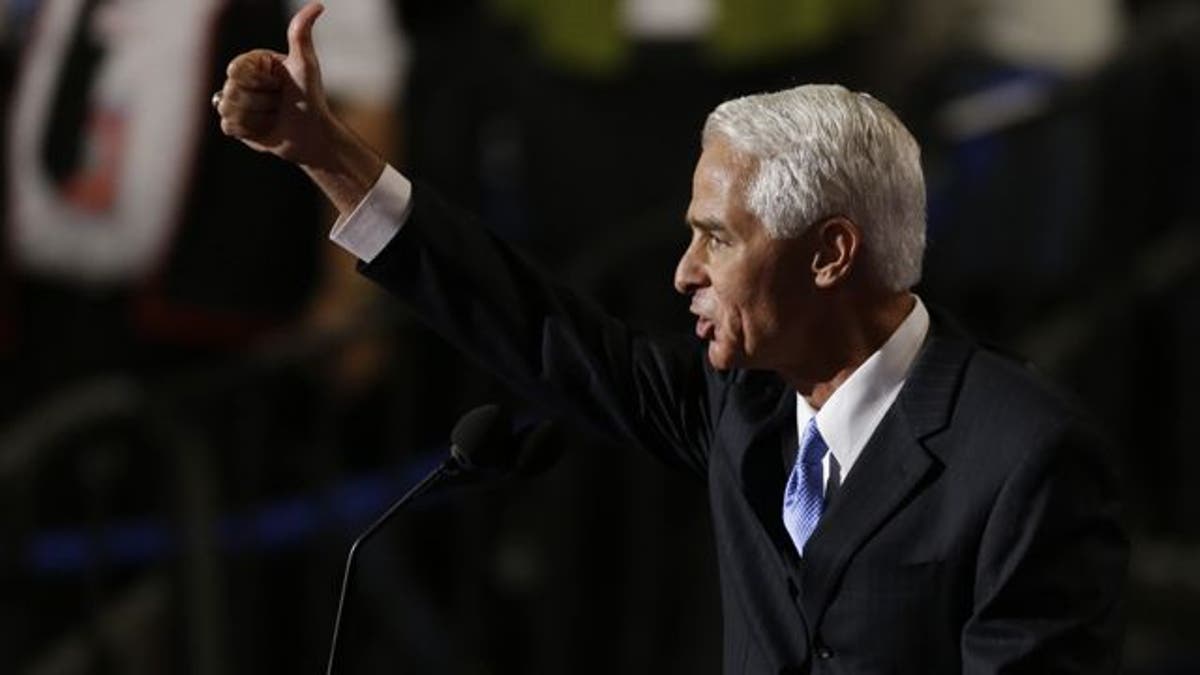
The Florida primary for the gubernatorial race is expected to yield no surprises – former Gov. Charlie Crist is considered a shoo-in to be the Democratic nominee, and Republican Gov. Rick Scott is expected to coast to his party's nomination for a second term.
But observers will be studying the voter turnout and the margin by which Crist beats former Senate Democratic leader Nan Rich.
Florida is one of four states where voters will cast primary and runoff ballots Tuesday.
With a huge advantage in fundraising and name recognition, Crist is a heavy favorite over Rich. The question is whether his victory margin will match those advantages or instead suggest that he's struggling to connect with core Democrats.
Nearly 1.7 million Latinos were registered to vote in Florida in 2012, according to Pew Hispanic Research, accounting for about 14 percent of the state’s roughly 12 million “active registered voters.”
As recently as 2006, more Latinos in Florida were registered as Republicans than Democrats, but that changed in 2008. Among Latino registered voters, 476,000 were registered as Republicans in 2012, compared to 645,000 who registered as Democrats.
In Arizona, several Republicans are vying to succeed GOP Gov. Jan Brewer.
Republicans in Vermont will decide among four candidates who want to take on Democratic Gov. Peter Shumlin, who also serves as chairman of his party's national governors association. Other statewide offices, including an at-large House seat, also are on the ballot.
Oklahoma Democrats will choose their Senate nominee in a runoff, with state Sen. Connie Johnson expected to top perennial candidate Jim Rogers. The winner becomes a general election underdog against Rep. James Lankford for the seat being vacated by retiring Republican Sen. Tom Coburn.
There are 111,000 Hispanic eligible voters in Oklahoma—ranking 26th in Hispanic eligible voter population nationally, according to Pew Hispanic Center. Some 4 percent of Oklahoma eligible voters are Hispanic, ranking 25th in Hispanic eligible voter share nationally.
But the Florida race has gained national attention both for Crist's resurrection attempt and Scott's struggles.
Scott, a wealthy health care executive who had never held public office before, won the job with less than a majority in 2010, and his first term has been marked by low approval ratings and struggles against the GOP-led legislature.
All of that has Democrats primed for an opportunity to pick up a governor's seat in a state President Barack Obama won twice. But in their favorite, they have a Republican-turned-independent-turned-Democrat who has left some party faithful wary.
Arlen Ustin, a 72-year-old retiree in Delray Beach, said Crist has been "insulting" to Democrats by refusing to debate Rich and campaigning as if the general election was already at hand. "I will be out there for him" should he win, Ustin said, but she added, "It can't be the way I am for Nan because she's just exceptional."
Crist's last foray into statewide politics ended in embarrassment for him and for Democrats. In 2010, three years into his term as governor, Crist decided not to run for re-election, instead trying for the Senate.
Already unpopular among conservatives in part for backing Obama's economic stimulus law, he ran as an independent rather than face GOP primary voters. Crist finished well behind the eventual winner, Republican Marco Rubio, but still relegated the Democratic nominee to an even more distant third.
Since then, Crist declared he was a Democrat, complete with a full embrace of the Obama administration. He endorsed the president for a second term in 2012 and campaigns as an unapologetic defender of Obama's health care law. That sets up the potential fault lines in a race against Scott, who initially called for expanding Medicaid insurance rolls under the new law but backed off when GOP lawmakers balked.
In Arizona, Brewer has put her muscle behind former Mesa Mayor Scott Smith. The pair appeared together at multiple campaign stops Monday trying to rally last-minute support.
But state Treasurer Doug Ducey has painted himself as the front-runner in the race, citing a broad coalition of business leaders and other political figures. The field includes former GoDaddy executive Christine Jones and Secretary of State Ken Bennett, among others.
Democrat Fred DuVal is unopposed in his primary and will face the GOP winner in November.
Some 20 percent of Arizona eligible voters are Hispanic, the fourth largest Hispanic eligible voter share nationally, according to Pew Hispanic Research Center.
Roughly 42 percent of them are eligible to vote, ranking Arizona 19th nationwide in the share of the Hispanic population that is eligible to vote.
Brewer stressed in a recent appearance that the GOP nominee must work quickly after a bitter, expensive primary. "We all know that during a primary, things get kinda hot and heavy," she said.
In Vermont, the most interesting dynamics may involve write-in campaigns by third-party hopefuls trying to crash the major party primaries.
Dan Feliciano is a Libertarian, but he's running for the Senate as a write-in candidate in the Republican primary against three other candidates — Scott Milne, Steve Berry and Emily Peyton – whose names appear on the ballots. Milne, a businessman, is the favorite.
Meanwhile, Democrats were expected to nominate a write-in candidate “Progressive Dean Corren” for lieutenant governor after the only candidate dropped out.
Vermont’s total Hispanic population is 9,208, or 1 percent of the state’s population, according to the 2010 Census. The state had roughly 4,000 Hispanic eligible voters, accounting for about 1 percent of all eligible voters in the state.
The Associated Press contributed to this report.
Follow us on twitter.com/foxnewslatino
Like us at facebook.com/foxnewslatino




